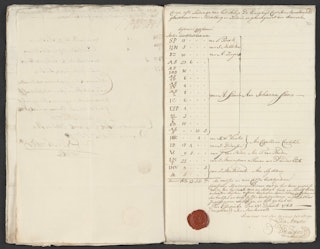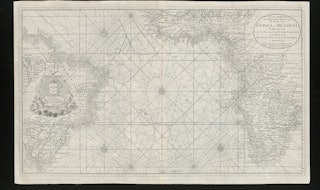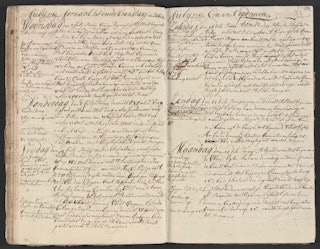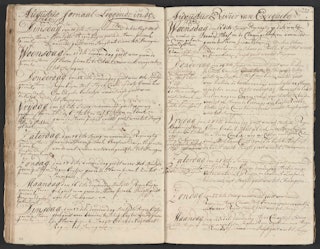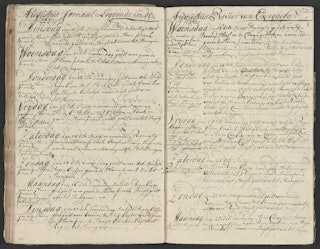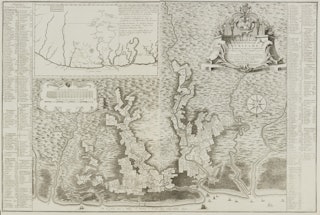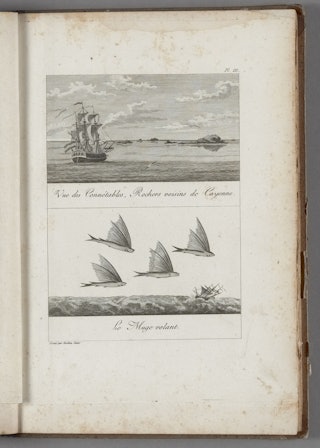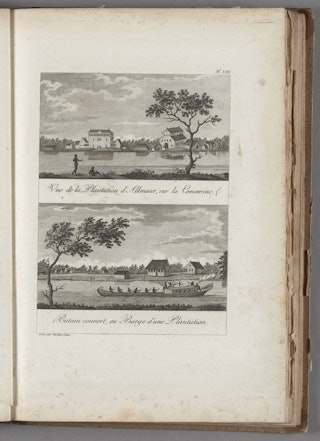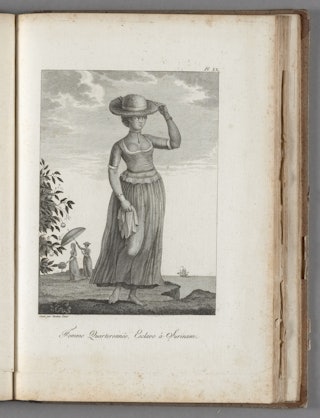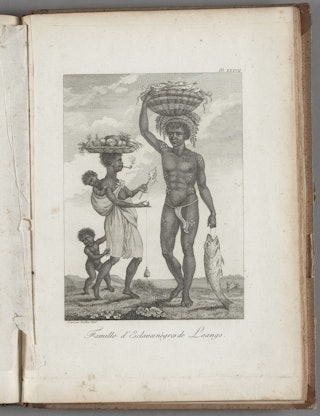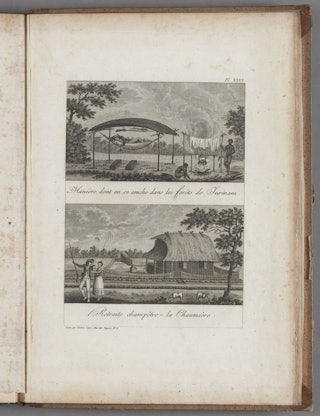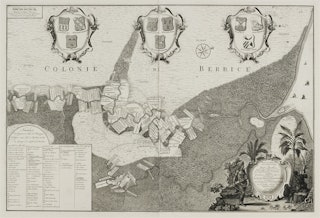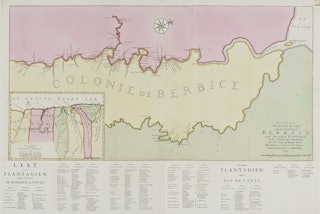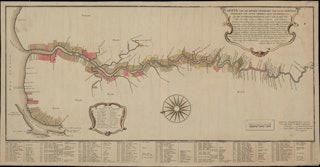5.1 West Indies
Introduction
With the West Indies, or The West, area’s of Middle America were implied, the current Caribbean and the colonies in the northern part of South- or Latin America. The name West Indies or The West stems from the time Christopher Columbus thought he had reached the Indies via the western route. The America’s were later also called The New World, as opposed to the Old World (Europe, Africa and Asia).
Documents
Worksheets
- Introduction Lesson 5.1 West Indies
- Lesson 5.1 West Indies – Math
- Lesson 5.1 West Indies – Language
- Lesson 5.1 West Indies – WO
Extra
Discussion about then and now
You can find instructions about conducting a discussion in the Manual for Teachers.
Topics that may provide an opening for a discussion about the voice of the slaves.
Oral history
In the archives of the Middelburg Commerce Company (MCC) we hear the voices of the first mate through his log, the surgeon through his journal, the captain through his letters, the members of the ship’s council through their statements and the MCC directors through their regulations and orders. In the MCC archives the voices of the slaves are not heard. They did not write about what happened to them. They did talk about it, with each other, their partners, their children and their grand children. The narrative of slavery was passed on from one generation to the next orally. Some (former) slaves did write down their narrative. In the aftermath of slavery in the United States various freed slaves were interviewed about their life in slavery. The interviews are kept in libraries and archives in the United States or published in articles, books and films. A well-known example is the story of Solomon Northup, a free black American, who was abducted, forced into slavery, and worked in slavery on various plantations for 12 years. The book with his narrative appeared in 1853: 12 Years a Slave and was filmed in 2013. The narratives of the freed slaves are of great value for our knowledge about slave trade and slavery.
Discussion assignment: reading and talking
The discussion assignment consists of two parts: reading and talking about what you have read.
Reading:
With your classmates and teacher select a book that you will read together. Below you will find some suggestions.
Read the book and write a short report on it. In the report also include your own opinions about the narrative.
- Trouble Don’t Last. Author: Shelley Pearsall. Publisher: Random House. Published: 2003. ISBN: 9780440418115. Age: 8+.
- Tutuba. The Girl from the Slave Ship Leusden. Author: Cynthia McLeod. Publisher: Conserve. Published: 2013. ISBN: 9789054293583. Age: 10+
- The Cost of Sugar. Author: Cynthia McLeod. Uitgever: Vaco. Published: 1987. ISBN: 9781908446015.Leeftijd: Age: 13+
- The Book of Negroes. Author: Lawrence Hill. Publisher: Harper Collins. Published: 2011. ISBN: 9781443408981. Age: 14+
Other suggestions for books about slavery/ slave trade.
Discussion:
Based on some general questions you can discuss the book.
- What do you think of the book you have read?
- Is the narrative a true telling, partially true and partially fiction, or completely fictional? How can you tell?
- Did the author do research into the time of trans-Atlantic slave trade and/or slavery on the plantations? How can you tell?
- Did the narrative get you thinking? In what way?
- Did the narrative give you a different perspective on slave trade or slavery? If so, what has changed? If not, why not?
More information and questions about the discussion topic The voice of the slaves
More information
Dutch Canon of National History – Slavery (in Dutch)
5.2 Colonies
Introduction
A colony is an area of land that is governed by another country. The land governing the colony makes a profit through the sale of raw materials and products from the colony. The Dutch-Indies (the current Indonesia), Dutch-New-Guinea, the Dutch Antilles, Surinam and other areas in the former Dutch-Guiana, were Dutch colonies. The Netherlands also had a number of colonial possessions in Africa and the America’s.
Documents
Worksheets
- Introduction Lesson 5.2 Colonies
- Lesson 5.2 Colonies – Math
- Lesson 5.2 Colonies – Language
- Lesson 5.2 Colonies – WO
Extra
Discussion about then and now
You can find instructions about conducting a discussion in the Manual for teachers.
Topics that may provide an opening for a discussion about colonial times
Then:
In the colonized regions of the West Indies, the Dutch founded plantations where they cultivated sugar, cacao, coffee, tobacco and cotton. The plantation owners governed the plantations and sought other people to work the land. Many of the native inhabitants of the colonies died through eradication or diseases brought by the westerners, alternatively many colonists died of tropical diseases. The inlanders, called Indians, resisted working on the plantations. The westerners also did not deem them suitable for working the land. This is why they sought laborers in Africa. There African’s were captured by African slave traders, sold to Western-Europeans and shipped to the America’s to work as slaves on the plantations and in house keeping. The yield from the plantations was shipped to the homeland where they were sold with large profits. The native inhabitants and the slaves did not profit from this.
- What were the reasons to colonize other, often overseas, regions? What reason was the most important?
- Often the native inhabitants were eradicated or chased away from a region that was colonized. Why do you think the colonizers did this?
- Trade companies, such as the United East India Company and the West India Company, sponsored explorers because they hoped to discover new trade routes. Can you name any discovered area’s that did not become a colony? Can you name any discovered area’s that did become a colony?
Now:
With the years most colonies have become independent countries or have in some way or another become as equal countries or linked to the constitutional order of the former colonial power. This process of detachment we call decolonization. The Dutch colonies in the West Indies were all traded or lost during a war or decolonized. This often happened under pressure of changed global opinion and political pressure from the inhabitants of the country. Most countries have become independent nations.
- Do we look at colonies differently now, as compared to the past? If so, why is this and how is this shown? Compared to the past, do you think enough has changed? Or not yet? Elaborate your answer.
- What is the difference between entering a country and occupying it and entering another country and colonizing it? Or is there no difference?
- Many games, such as board games (for instance The Settlers of Catan) and games you can play online, are about colonization. Colonizing fictive worlds, dimensions or planets, to name a few examples. Have a look at your answer and your thoughts on question 3. Colonization games are only games, but still… can comparisons be made with how you behave in these games and how the colonists behaved in the past? What do you think about your conclusions? Do they make you think? Motivate your answer.
More information and questions about the discussion topic Colonial times
More information
Dutch Canon of National History – Surinam and the Antilles (in Dutch).


